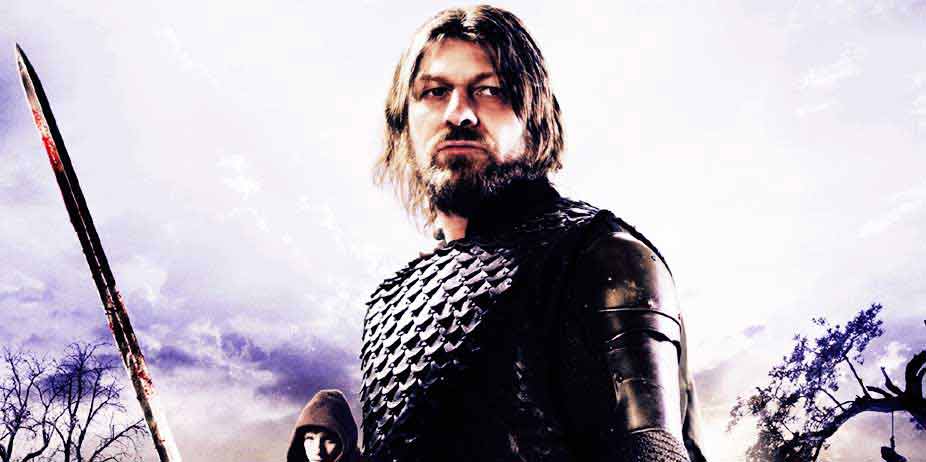Black Death (2010)
It hardly seems unusual that two films with the same premise should be released around the same time. Though this hasn't the budget of the larger and better-known film, it is considered by many to have a better script.
The Black Plague is sweeping across Europe. No one knows where it comes from or how it spreads, only that it leaves rampant death and destruction in its wake. Fearing for her life and hoping to escape "God's wrath," beautiful Averill (Kimberley Nixon) chooses to leave a town that has only recently fallen prey to the illness. The man she loves, a novice at the local monastery, refuses to go with her but she tells him she will wait for him for five days at their former meeting place in case he changes his mind. Young Osmund (Eddie Redmayne) is torn between his love for her and his devotion to Christ, and sees an opportunity to reconsider when a group of men arrive at the monastery on a mission from the bishop. Rumor has it a village in the wilds has not yet been touched by illness and is guarded over by a necromancer.
Ulric (Sean Bean) has been dispatched to find the witch or warlock and execute them. But in the woodland between the city and the village lie many perils and at the far end, rampant paganism and other evils await them. The script is surprisingly solid for a B-movie and certainly has enough creepiness and horror to make this an unusual period drama. It has a great cast and decent costuming and design, but it's also unpleasant at times to watch -- not merely for its cruelties but also its rather harsh view of Christianity. Neither Christians nor atheists nor pagans are cast in a very good light, because it all boils down to an entwined series of events built around revenge. Osmund seems the most faithful but in a twist is revealed to have forsaken his compassion for pursuing the slaughter of innocents in God's name. Without revealing too much, in the village they encounter a woman professing to be (or faking it) a necromancer and the villagers offer them life if they renounce their faith in God. (Of course, they don't intend to keep their promise.) The villagers believe that killing Christians will keep them safe from the plague.
The plague is referenced as God's judgment on all people. Ulric takes his role seriously as a man who kills in the Church's name, and they tote along a torture machine. Supernatural elements are present -- Osmund is haunted by visions of someone he loved haunting him, drenched in blood and full of accusations; it appears that a woman has been resurrected from the dead (later, it is said it was a trick, but the audience is never quite sure). The scenes in which the men are killed one by one and asked to renounce God are hard to watch. And the script is quite clever in constantly keeping us guessing as we try and figure out who the bad guys are here -- is it Ulric? the witch? the villagers? Osmund? The ambiguous nature of the story leaves it open to interpretation but at the end of the day it's the lack of inclusion of any sort of moral governing force that leaves a bitter taste. It's a very dark, rather sick, and depressing look into an interesting and horrible time in European history.
Sexual Content:
None.
Language:
Language includes a handful of f-words at one point and various insults.
Violence:
The R-rating is well deserved for moments of explicit violence and intense thematic elements. The most brutal scene includes a battle in the forest, where arms, legs, and heads are sliced off. Men are stabbed, gutted, and hacked with hatchets. Elsewhere, innocent and guilty people are killed -- it's inferred that one man is sliced open from one side to another. A woman has her toe cut off (off screen, but we hear the crunch) in a torture chamber. One man is strung up between two horses and torn in half (but not before being stretched for awhile). Blood spatters, and we see it covering rocks and hands after tending to wounds.
Other:
We see/hear a man urinating.

